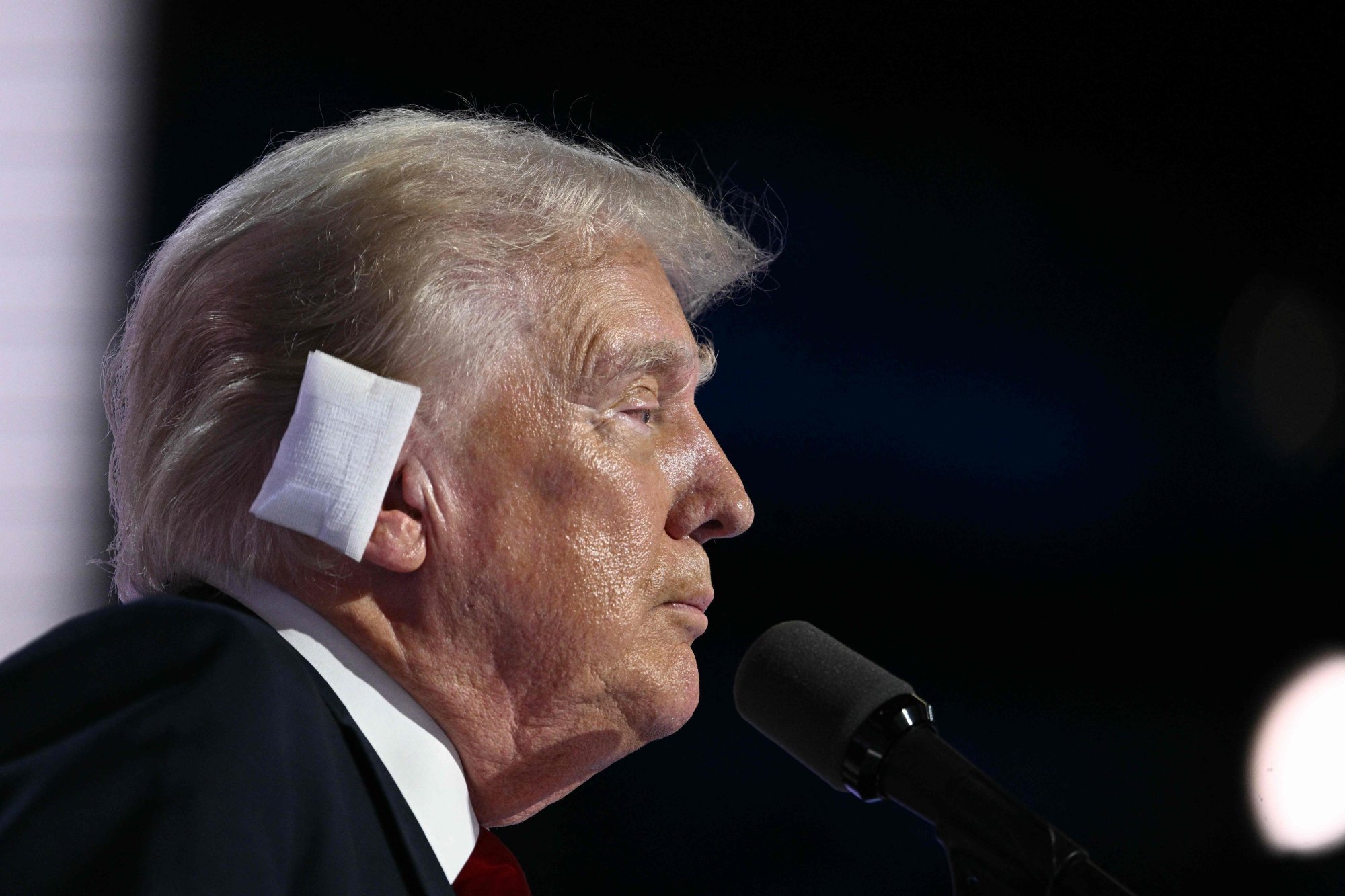Joe Biden steps down from US presidential election fight, backs Kamala Harris
“I believe it is in the best interest of my party and the country for me to stand down,” he said in his early afternoon message, adding a few minutes later: “I have decided not to accept the nomination and to focus all my energies on my duties as President for the remainder of my term.”
Biden said he would speak to the nation later in the week in more detail about his decision.
“My very first decision as the party nominee in 2020 was to pick Kamala Harris as my Vice-President. And it’s been the best decision I’ve made,” Biden added. “Today I want to offer my full support and endorsement for Kamala to be the nominee of our party this year.
“Democrats — it’s time to come together and beat Trump. Let’s do this.”
In the weeks following the debate, Biden and his advisers went into overdrive hoping to repair the damage, with defiant statements, interviews and campaign events trying to convince donors and Democratic Party stalwarts that he was mentally sharp and physically capable.
“When you get knocked down, you get back up,” he said at a rally in North Carolina.
These included an ABC News interview with George Stephanopoulos, radio interviews involving questions pre-vetted by the White House and an hour-long Nato press conference in which he mistakenly referred to Vice-President Kamala Harris as Trump.
But ultimately the debate memes and verbal lapses, reinforced incessantly on social media, proved decisive. A bout of Covid-19 in mid-July that briefly kept Biden from actively campaigning and fed into Trump’s narrative of a frail opponent did not help.
It came a week after an attempted assassination of Trump just ahead of the Republican National Convention that prompted Biden to temporarily suspend campaigning and pull advertisements.
“There is no place in America for this kind of violence,” Biden said.
Biden’s decision to step down also shakes up the Republicans. Trump, himself 78, has shaped his campaign in opposition to his rival’s age and health, epitomised by his repeated “crooked, sleepy Joe Biden” slogan.
This has diverted voter attention from Trump’s shortcomings, including his own age, slower gait, verbal missteps and at times nonsensical statements.
The Republican convention in mid-July also seemed at times more like a coronation of an inevitable next president than a battle still under way, political analysts said.
During the hugely consequential debate on June 27, Biden often stumbled over his responses and at one point appeared to freeze up, despite preparing for nearly a week.
Political analysts said that Biden sought to show he was still on top of his game and demonstrate his policy chops compared with Trump, who is known for his bluster and indifference to the truth.
But Biden failed spectacularly in a performance seen as meandering, halting and unsettling that failed either to promote his successful handling of the economy, his positions on abortion and foreign affairs or to fact-check Trump’s multiple misstatements.
Public calls by Democratic elected officials for Biden to step down started a few days after the debate with a statement by Representative Lloyd Doggett of Texas.
“Recognising that, unlike Trump, President Biden’s first commitment has always been to our country, not himself, I am hopeful that he will make the painful and difficult decision to withdraw. I respectfully call on him to do so,” Doggett said.
In subsequent days, the drumbeat intensified, with Representative Nancy Pelosi of California, the influential former House speaker, hinting that Biden should reconsider his declaration to stay in the race, saying that “time is running short” for him to decide.
This was followed a few days later by more blunt comments by Representative Adam Schiff of California, another Democratic heavyweight and close Pelosi ally, calling directly for Biden to step aside. By July 17, nearly two dozen elected Democrats had made their “best to leave” views explicit.
Polls shortly after the debate showed momentum only slightly shifting in Trump’s favour in key battleground states and nationwide.
But the continued questioning of Biden’s capabilities accelerated the trend, with recent surveys suggesting that two-thirds of Democrat voters supported his stepping down even as major campaign donors signalled their discontent.

The turmoil within the party has also fuelled questions about voter enthusiasm, amid concern that tepid Biden supporters would be less likely to vote or might choose Trump or an independent candidate.
The last time such a late decision was made not to run was over a half-century ago when Johnson shocked the nation with his televised announcement in March 1968.
Amid strong criticism of his escalation of the Vietnam war and nationwide campus unrest, Johnson faced primary challenges from Senators Robert Kennedy of New York and Eugene McCarthy of Minnesota.
But Johnson made his announcement when party primaries were still going on, and Johnson’s vice-president, Hubert Humphrey, had time to step in. After Kennedy was assassinated in June 1968, Humphrey won the nomination at a chaotic convention in Chicago only to lose a close election to the Republican nominee, Richard Nixon.
In Biden’s case, he faced only token challenges during this year’s primaries and secured the necessary number of delegates for the nomination early in the process.
Now uncertainty surrounds Biden’s successor , as it is not immediately clear how to transfer campaign funds and delegate votes earmarked for Biden to a new candidate.
The new Democratic presidential candidate will also have a relatively short period to build public support before the November 5 election, in a US presidential election process that can seem interminable.

Also unclear is how this will affect US China policy.
Upon succeeding Trump in 2021, Biden kept the tariffs in place and added to them, focusing on hi-tech sectors under a “small-yard, high-wall” strategy.
And during his three-plus years in the Oval Office, Biden has amassed arguably one of the most substantial legislative records among modern American presidents.
That said, Biden has won relatively little credit in the eyes of an American public weary of inflation, illegal immigration and other issues.